Meta Expands EU Facebook Marketplace Partnership To More C2C Platforms - Will eBay Take A Hit?
Meta announced a new classified ad integration into their Facebook Marketplace platform last month in an attempt to appease EU and US regulators, originally tapping eBay to be their first test subject in a move that sent eBay's stock soaring to a new 52 week high.
But a month later, eBay sellers say they still haven't seen any indication their listings are appearing on Facebook Marketplace through this partnership and Meta's latest announcement about the program may not bode well for eBay as they look to quickly expand the offering to more partners in the EU.
A new Meta for Business help page reveals more details about how the program works, which kind of companies are eligible and how these ads will look when displayed to consumers on Facebook Marketplace and clearly explaining this move is in response to last year's European Commission decision which fined the company €797.72 million for breaching EU antitrust rules.
Facebook Marketplace Partner Program
Enable users in European Economic Area countries to see your listings on Marketplace and complete their purchases on your website when you become a Marketplace partner.Why should you consider becoming a Marketplace partner?
Marketplace partners will gain access to Marketplace’s engaged and relevant user base, allowing them to increase traffic to their platforms and sellers.Marketplace’s advanced product discovery and recommendation systems will help Marketplace users discover your inventory.
This program is Meta’s response to the European Commission’s Marketplace Decision.
How It Works
To be considered potentially eligible to become a Marketplace partner in this program, you must be an online classified ad service (consistent with the European Commission’s definition of that term) with available consumer-to-consumer listings in a European Economic Area country.
Meta's eligibility criteria policy provides this definition for a qualifying online classified ad service:
- Allow sellers to list, and potential buyers to review, listings relating to pre-owned products;
- Have listings that are searchable and that can be filtered by product categories;
- Allow buyers to contact sellers to negotiate the conditions of the sale;
- For a majority of its listings, enables users to complete the transactions without the intervention of the Online Service (e.g., offline); and
- Be comprised of a majority of inventory that is held by consumer (non-business) users of the Online Service and not by the Online Service itself or its Affiliates.
Point number 4 is particularly interesting since that would seem to not apply to eBay Germany, which removed the option for buyers to pay with cash on collection in 2023 and instead requires users to utilize eBay's built in payment system.
And point number 5 could also pose challenges for eBay, where businesses still make up a majority of sellers on the platform despite recent efforts particularly in Germany and the UK to grow the C2C market.
It's of course possible Meta may have applied special privileges or exemptions to this criteria for eBay as part of the trial announced last month, but if not, that could be a big problem for eBay.
How will listings appear on Marketplace, and who can see them?
Users in EEA countries will have the ability to choose which partner listings they want to see, including whether they want to see Marketplace listings.
Your listings will appear to users who choose to see your inventory in the countries where it is available. Partner listings appear on Marketplace feed and on Marketplace search and will be ranked neutrally with Marketplace listings. Users will be able to easily identify partner listings with a visual icon/identifier.
All transactions for Marketplace partner listings will be completed on the partner’s website. Marketplace buyers who choose to see your listings will be able to view product details pages for your inventory. Within that product details page, a button will redirect users to your website, where they can complete the transaction.
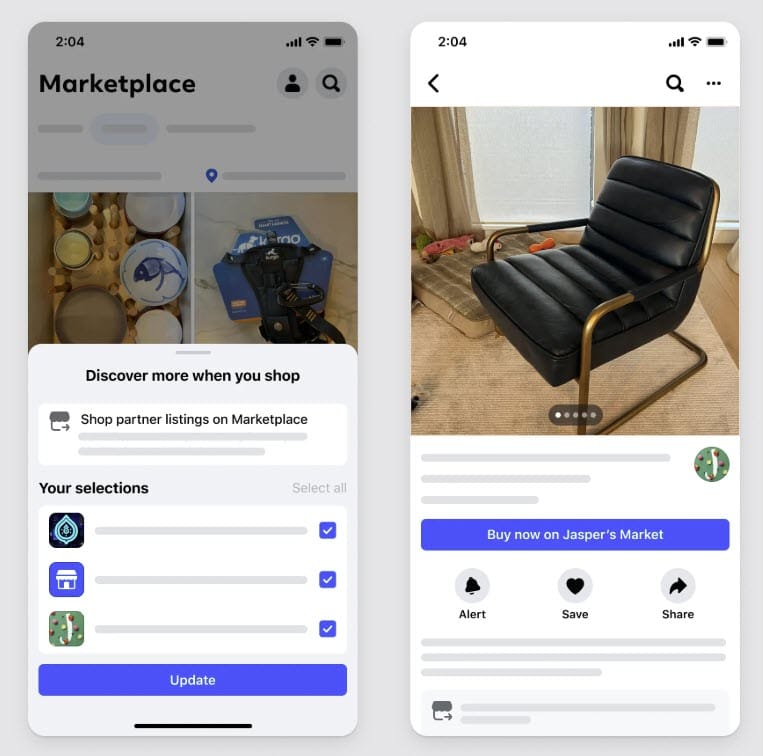
Companies which wish to participate in this partnership program will need to use an API developed by Meta to ingest and update their listings on Marketplace.
To ensure that Marketplace users can effectively search and compare listings of their chosen partners, you will need to provide data about the listings you want to distribute on Marketplace, such as the listing description, seller name, and delivery type.
Partners are responsible for making sure all listings submitted through the API comply with Meta's Commerce Policies and Terms of Service and items found to be in violation will be removed.
One part of those policies lists items which are prohibited from being listed on Facebook Marketplace, including vehicle parts - which could be another big blow to eBay as Motors Parts and Accessories is one of their largest categories.
Have a process in place to ensure that it does not send to FB Marketplace, via its integration, listings that are prohibited from being listed on FB Marketplace pursuant to Meta's Commerce Policies and the Facebook Community Standards, including but not limited to services, animals, medical/healthcare products, recalled products, vehicle parts, weapons, event or admission tickets, gift cards and vouchers, or anything that is not a physical product.
Also of note - Meta explicitly says partners must "have a methodology to distinguish consumer sellers from business, trader, or professional sellers, and only send listings from consumer sellers to FB Marketplace."
Since these policies are specific to the EU market, that shouldn't be too difficult for eBay in France and Germany where they already differentiate between private and business sellers.
But the original announcement said the test would also include the US - and eBay does not differentiate between business and private sellers that same way for their main US marketplace.
If Meta is applying the same criteria to the US test, that could help explain why no one has seen any eBay listings there yet - eBay may still be trying to figure out how to comply with criteria for the program, including but not limited to only sending items from consumer sellers; making sure they can quickly remove any listings that have been sold or are no longer available; and providing sellers with the ability to take down their listings and/or choose to not have their listings shown on Facebook Marketplace.
That last part could be a problem as eBay's announcement about the partnership specifically said there is nothing sellers can do to opt in or out - eBay will simply determine which listings to submit based on factors including current shopping trends and listing quality.
And finally, the big question - how much will it cost for Partners to list items from their sites on Facebook Marketplace?
Meta says:
Each new partner will have an initial period of fee-free integration. This will provide you with the opportunity to assess the benefits you get from the partnership without incurring any fees.
After this initial fee-free period, we'll charge on a cost-per-click basis. This, means you’ll incur a charge each time a user clicks on a button within the product details page of your Marketplace listing that redirects them to your website, where they can complete the transaction.
Additional information on the cost-per-click model will be shared once you fill out the interest form and we determine your eligibility.
When the eBay partnership was announced last month, most sellers immediately assumed in order for their listings to be featured, they would have to be using eBay's Offsite Ads cost per click product which was originally introduced in 2022 as a way for sellers to gain favorable Google placement and has since expanded to include visibility across a variety of external locations.
Since that initial rollout, eBay has struggled to get sellers on board with Offsite Ads, despite regularly running promotions to try to entice them to sign up, and many since the announcement of this Facebook partnership, many sellers have said their opinions about Offsite Ads hadn't changed.
If participation in Offsite Ads or some other way of paying for the privilege of having eBay listings appear on Facebook Marketplace does become mandatory, it's a good bet most sellers will simply crosslist their items onto Facebook Marketplace themselves rather than going through the hassle and extra expense of having eBay do the advertising for them.
To be clear, all of the policies and information above currently only applies to Partners in the European Economic Area and Meta may or may not have the same criteria when/if they expand the program in the US.
However, the fact that the eBay test includes the US was no doubt connected to an ongoing Federal Trade Commission lawsuit against Meta with similar antitrust and anti-competitive practice allegations where eBay specifically came up during discovery last year.
Including the US platform in the trial is likely an attempt by Meta to undercut those concerns or show they are already working to address them before the case heads to trial in April 2025 - and if so, we can expect that Meta's criteria for marketplace partners in the US will also likely follow closely with what they've laid out above for the EU.
My original assessment of last month's announcement was that the primary benefit would be for Meta, as they seek to appeal the EU fine and avoid a similar outcome in the US, not for eBay - and that assessment looks even more true today as we've yet to see any evidence any eBay listings have even gone live and Meta is quickly moving to allow more competitors into the program.




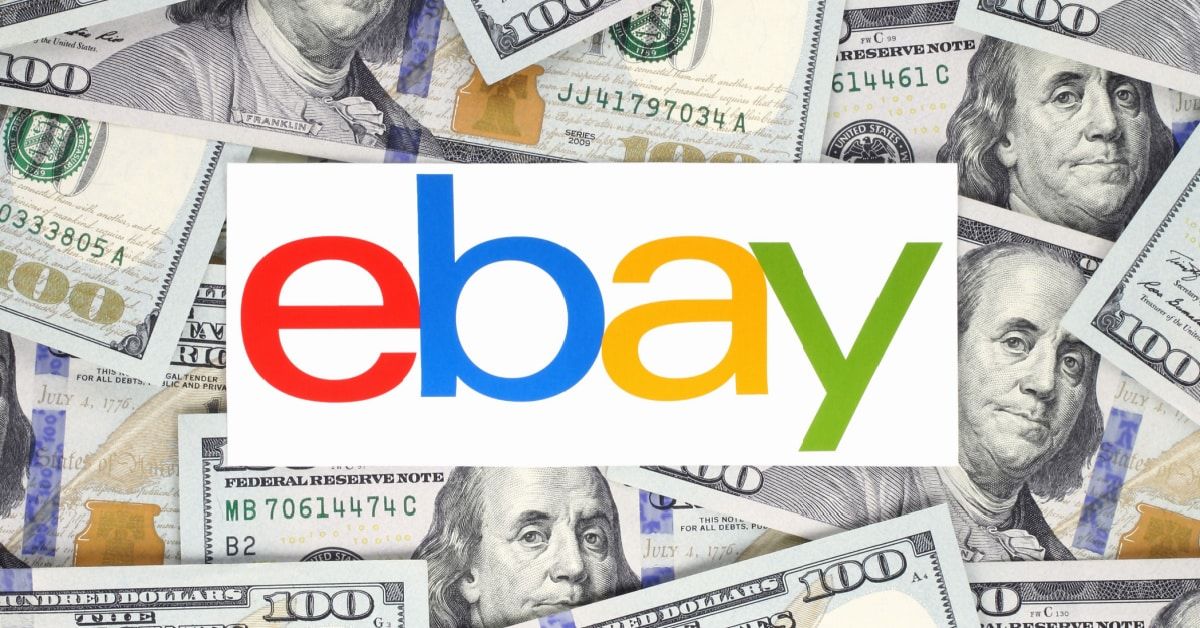



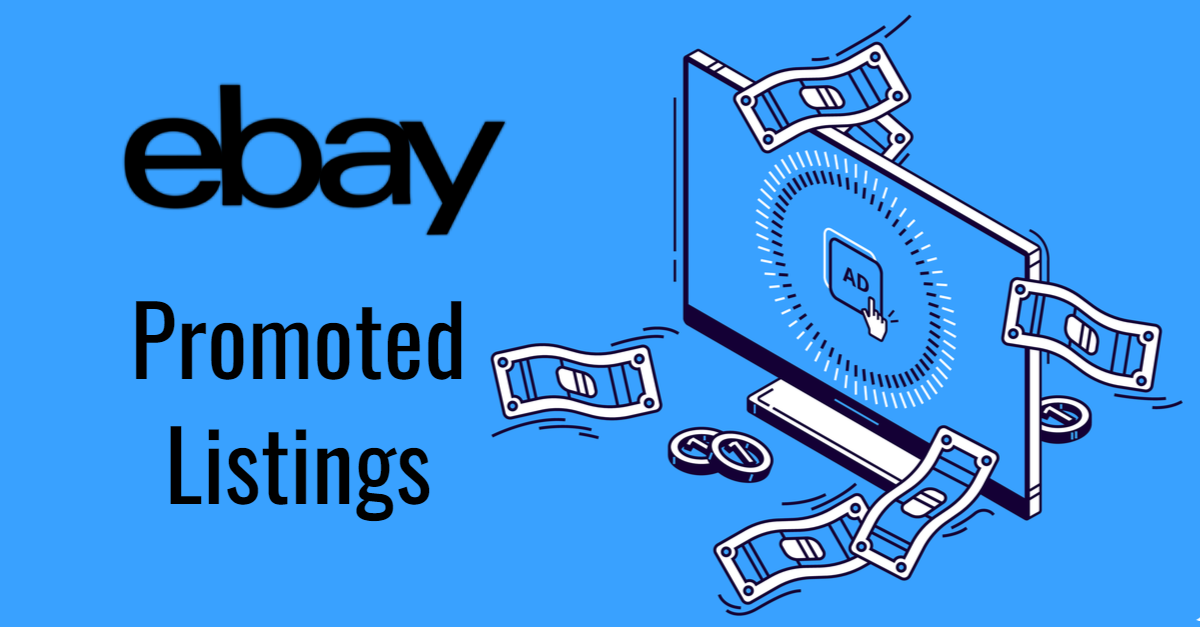

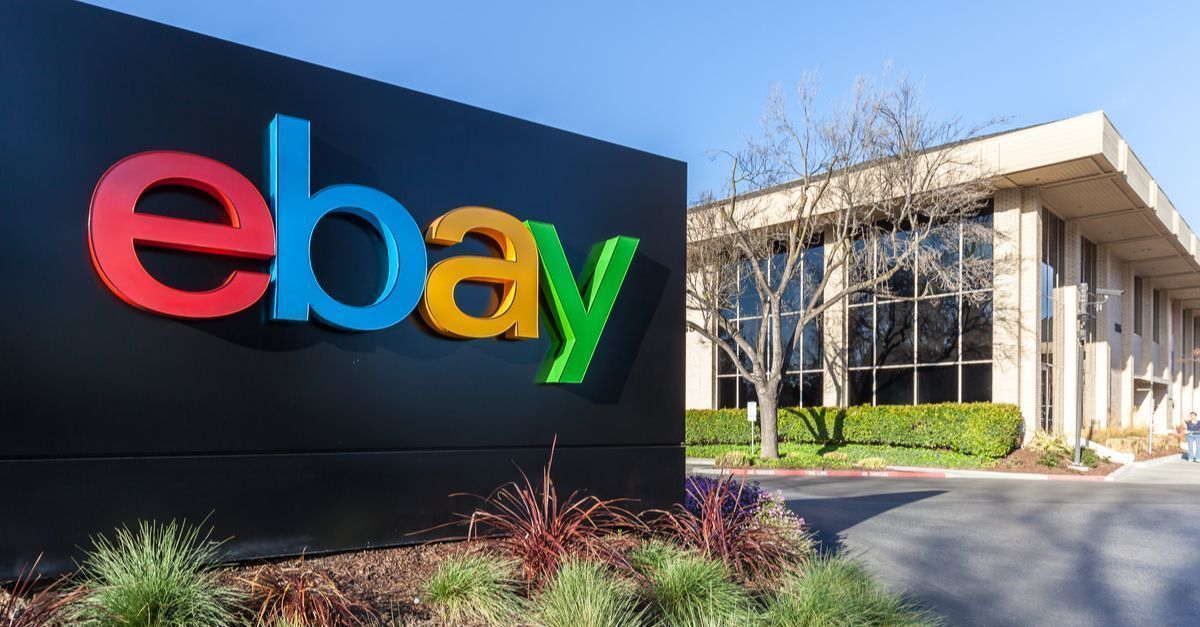

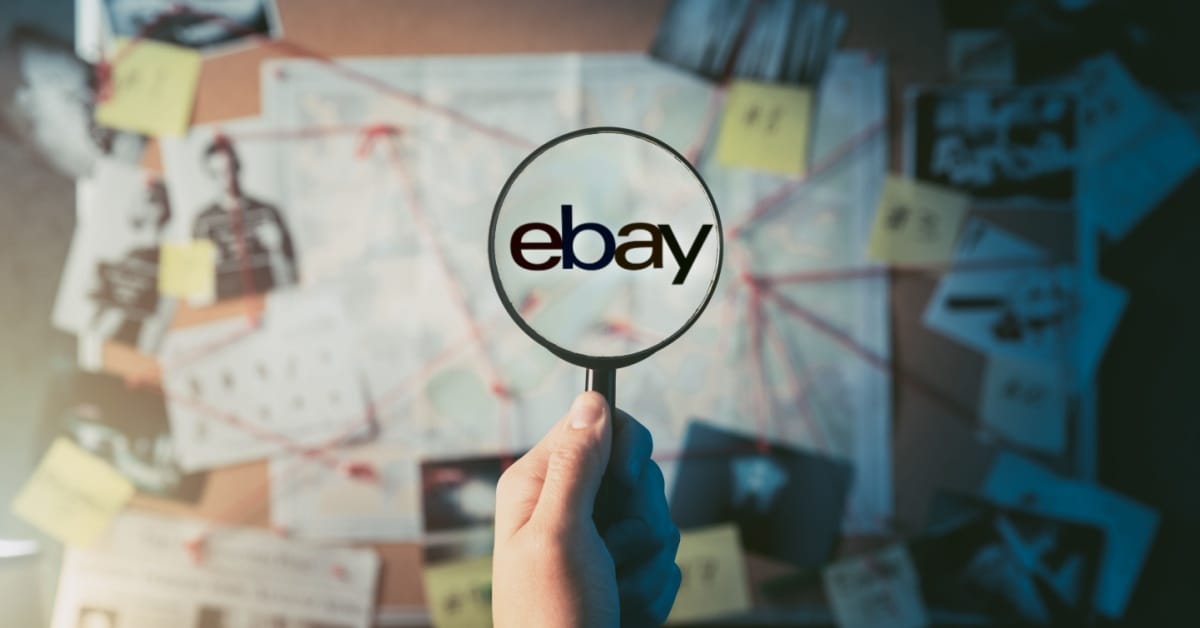
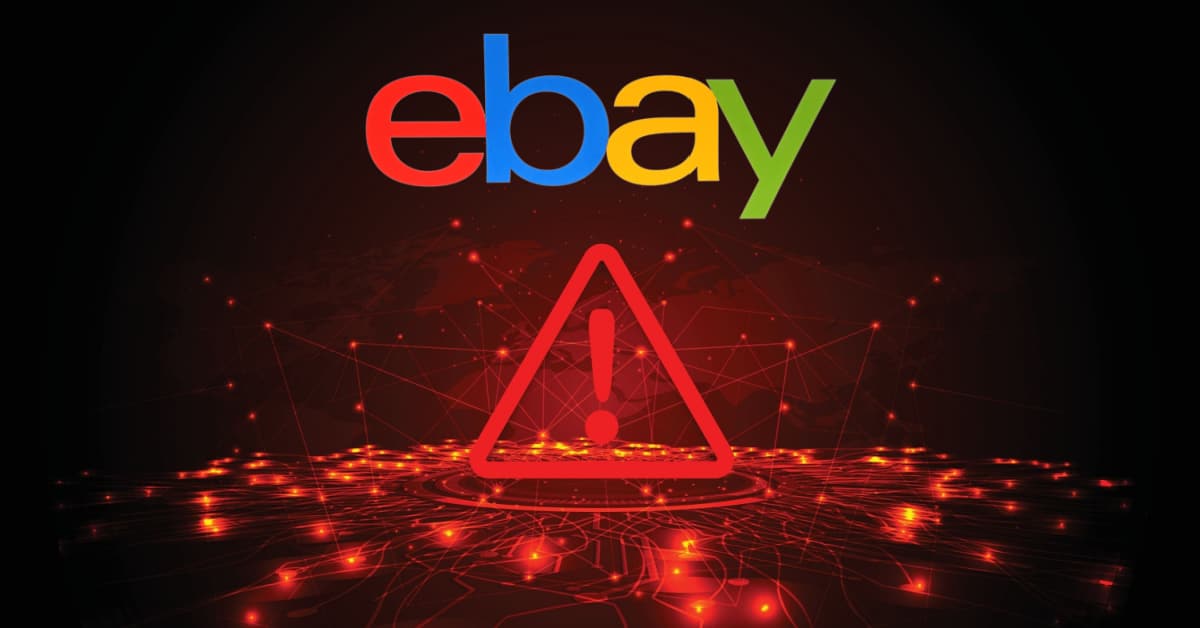














much too complicated now for a few pounds a year in sales
They just "killed the golden goose". I imported my 1500+ eBay items to there since it was free. Turned out just to be a lot of work for (maybe) 3 sales a month.
The total fees were higher there before this new $20 a month cost structure, even though they claimed otherwise. When one factors in the 3.49% + 49 cent PayPal processing fees so one can get paid, there went a good chunk of profit.
Now they have boosted their commission to 11%, and still claim that the cost to sell there is less than eBay's. And remember that this does not include payment processing. WHY?? Makes no sense at all.
On eBay, for $27.95 a month, I sell over 100 items there every 30-31 days. Makes ZERO SENSE to pay a site $20 to make just a couple of sales. Since they now allow 50 "free listings", I have trimmed my offerings back to just below that amount. Also had to raise all my prices accordingly to absorb the extra selling costs.
The people who run the show here obviously didn't realize that eBay sellers who imported their listings gave the site a great depth of product, which would attract more buyers. Now that will be gone, because NO ONE will pay them $20 monthly for little to no sales.
The site also has technical issues that they refuse to fix. It was a decent resource to enable the occasional sale, but they will soon be stacked onto the eCommerce trash heap of companies that THOUGHT they could compete with Amazon and eBay. Etsy may also suffer the same fate soon, as many sellers are also leaving their site due to high fees, website issues, and poor management.
Basic eComm rule here: When you do not carry any inventory, and sellers are solely responsible for supplying your site with the goods offered, DON'T BITE THE HAND WHICH FEEDS YOU!!!